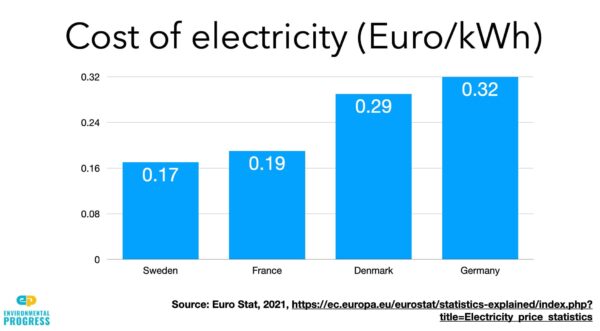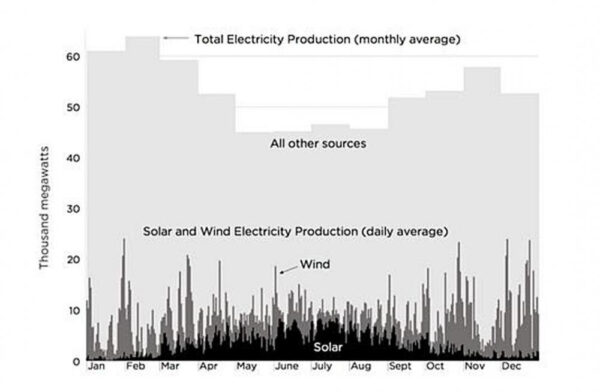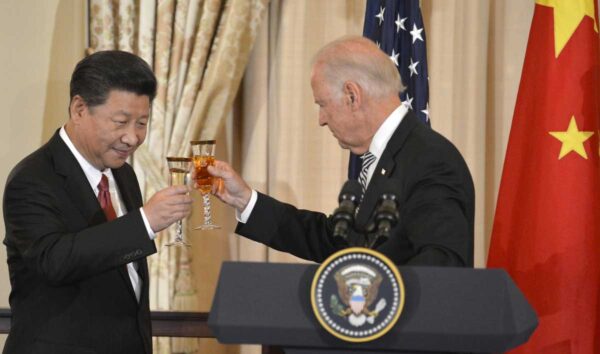by Michael Shellenberger A half trillion dollars to subsidize renewables would have raised energy prices, worsened inflation, and undermined decarbonization. But what do we do now? The centerpiece of President Joe Biden’s legislative agenda is dead. Senator Joe Manchin today announced that he could not support Biden’s “Build Back Better” legislation which consisted of $1.7 trillion in new spending and would have added $158 billion to the national debt over the next decade, according to the nonpartisan Congressional Budget Office. The largest component of spending, $570 billion, was for renewables, electric cars, and other climate change investments. Progressives, environmentalists, and Democrats are furious with Sen. Manchin, but it was their own climate and renewables dogmatism that doomed the legislation. Democratic Senators could have written legislation that expanded nuclear energy and natural gas, the two main drivers of decarbonization, which are strongly supported by Manchin, and Republicans, but instead investments went overwhelmingly to solar panels, wind turbines, and electric cars. It’s true that there were good things in Build Back Better, and that one of the worst climate provisions, the Clean Energy Performance Program, was already removed. Build Back Better included a tax credit for existing nuclear power plants, funding for advanced nuclear fuels, funding for fusion R&D, and financial support for communities hurt by the transition to renewables. But the money for nuclear would not have made much if any difference to the operating of nuclear plans. Nuclear plants in California, Massachusetts and New York are being shut down, despite already being profitable, for ideological reasons. Legislatures in less anti-nuclear states like Illinois, New Jersey, and Connecticult step in to save their plants when they need to. And higher electricity prices due to natural gas shortages are making nuclear plants in other states even more profitable. Of Build Back Better’s




